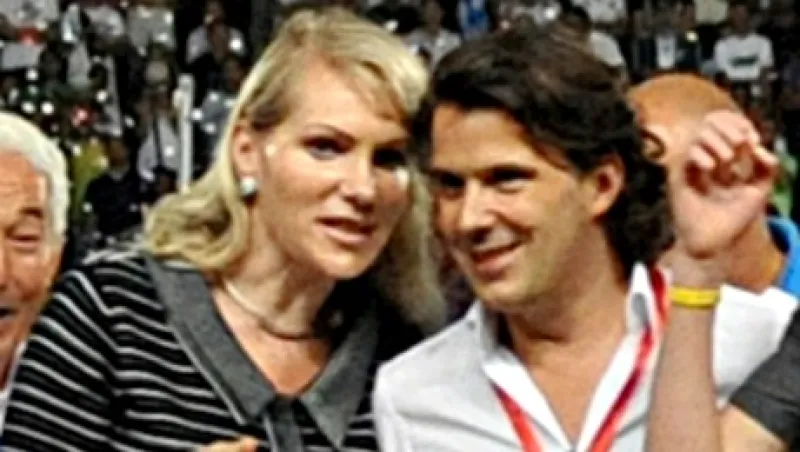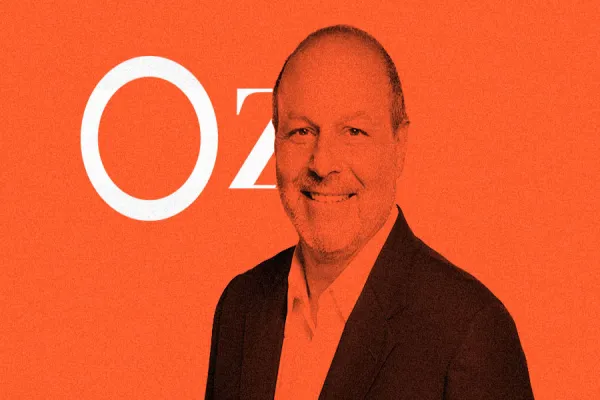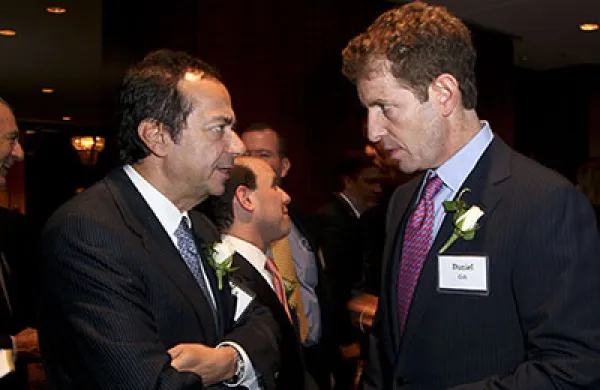As chair of commodities giant Louis Dreyfus Holding, Margarita Louis-Dreyfus oversees a big chunk of the world’s agricultural trade. Now she’s putting her company’s expertise to work to help Africans grow their own food.
Dreyfus is teaming up with Bamboo Finance, a Luxembourg-based private equity firm, to create Nisaba, a $50 million impact investment vehicle focused on accelerating small- and medium-size agribusiness enterprises in Africa.
The opportunity is huge. With Africa’s population expected to almost double by 2030, to 2 billion, and 330 million young workers entering the labor market over the next decade, the continent’s agricultural production hasn’t kept pace, Louis-Dreyfus noted in a recent statement announcing the fund. Roughly 600 million of Africa’s 1.1 billion people make their living from farming.
“You have to have something to offer to these populations,” says microfinance veteran Jean-Philippe de Schrevel, founder and CEO of $280 million Bamboo. “One of the best places to start is the sector that drives the economy and the fate of 70 percent of the population of Africa: agribusiness.”
Nisaba will allocate between $2.5 million and $3 million to each company it targets, in exchange for a 20 to 35 percent stake. The fund will single out SMEs with steady revenue that could use a capital injection and a partner to help them grow.
“Even at a small scale, we can harness the power of Louis Dreyfus and do something great for small shareholders in agribusiness,” de Schrevel reckons. The Amsterdam-based conglomerate, whose companies include Louis Dreyfus Commodities, posted revenue of nearly $65 billion in 2014.
Russian-born Louis-Dreyfus is no stranger to the developing world’s food security problems: She’s president of the Louis Dreyfus Foundation, which works with African, Asian and Latin American farmers in 16 countries to boost production in sustainable ways.
But when it comes to leading the world’s third-largest agricultural commodities player, she has a short résumé. Upon marrying her late husband, Robert Louis-Dreyfus, the onetime electronics salesperson turned to raising their family. When she took over as chair from Jacques Veyrat in 2011, two years after Robert died of leukemia, she became the first woman and the first non–Louis-Dreyfus heir to head the holding company. As family trustee for Akira Holding Foundation, created by Robert to preserve their now 80 percent stake in the business, Margarita has a permanent seat on its three-member board.
Dreyfus, which has pledged $10 million to Nisaba, is providing more than deep pockets. Olivier Santin, head of rice business development and M&A at Louis Dreyfus Commodities, will dedicate all of his time to the fund, alongside three managers from Bamboo, which will supply services such as risk management, reporting and impact assessment. The fund aims to ultimately sell its investments to companies active in agribusiness and to larger private equity firms.
To raise the remaining $40 million, the Nisaba team is talking to development finance institutions, other corporates involved in agribusiness and private investors, mostly family offices. The partners plan to launch the fund at first closing, probably in the first quarter of 2016, when it reaches between $25 million and $30 million.
At first Nisaba will concentrate on Kenya, Tanzania and Uganda. But Dreyfus and Bamboo plan to cover nine African nations and expand into Asia and Latin America.
Besides delivering expected financial returns of 12 to 15 percent, Nisaba intends to make a social impact, partly by helping African employers to pay higher wages. Perhaps the most important factor in that social return is adding value through local processing, de Schrevel says.
A thriving agribusiness sector will benefit African society at large, he reckons: “Giving opportunities for this young population to essentially live a better life, that’s really what we’re after.”
Follow Georgie Hurst on Twitter at @Ghurst_iimag.
Get more on emerging markets.






